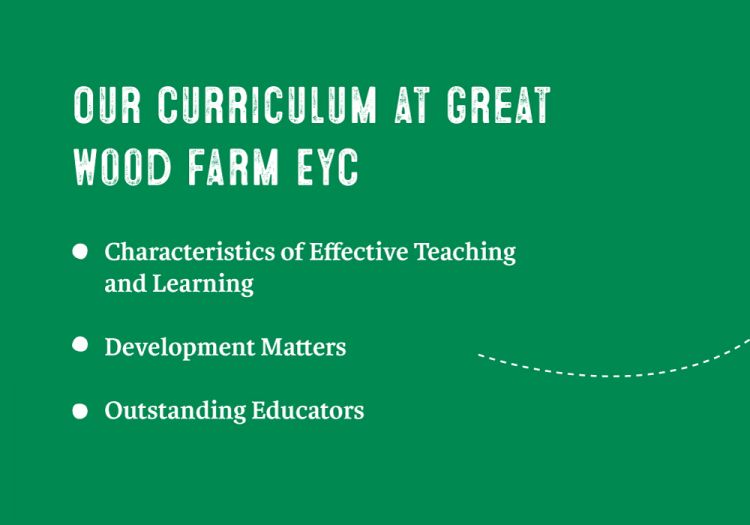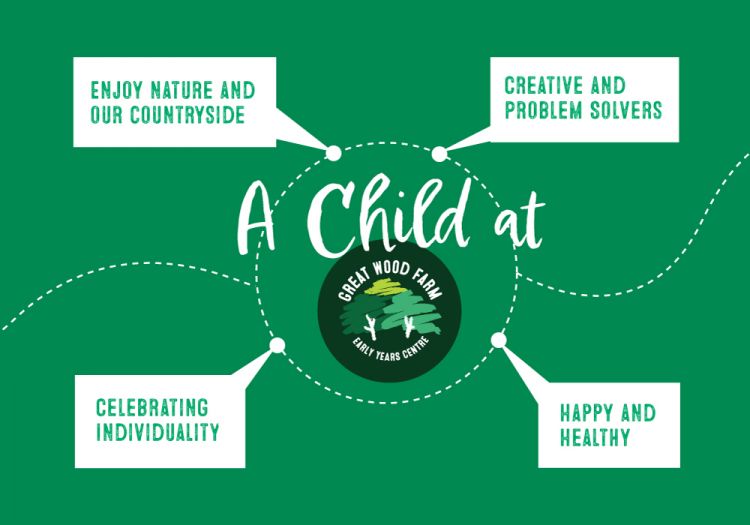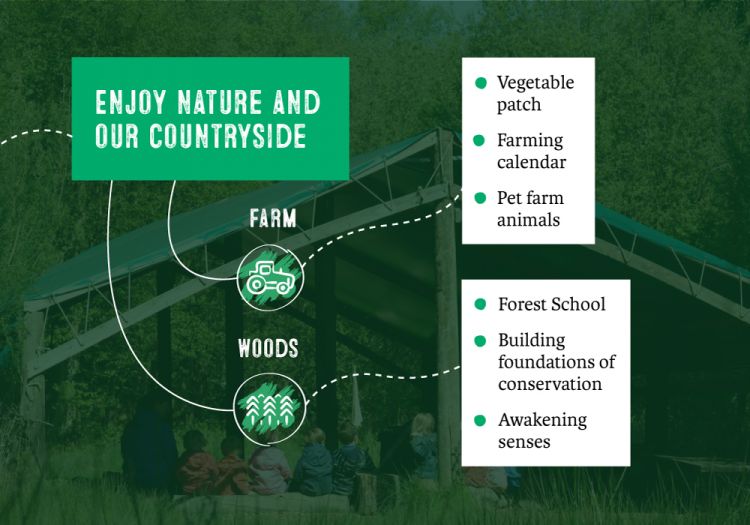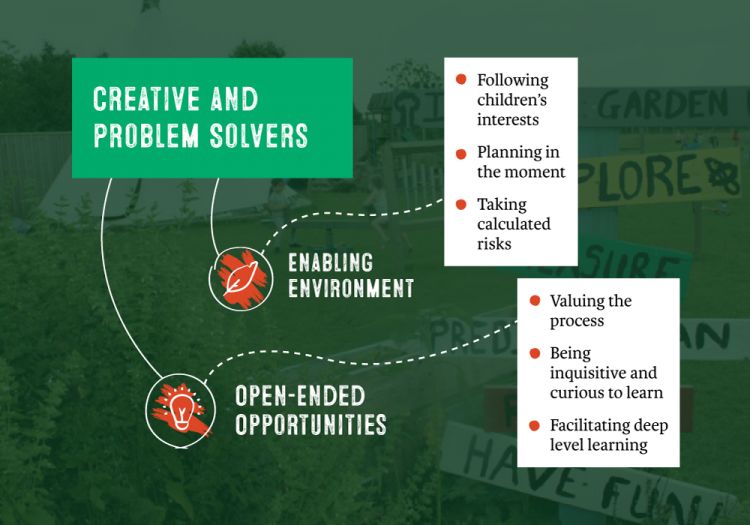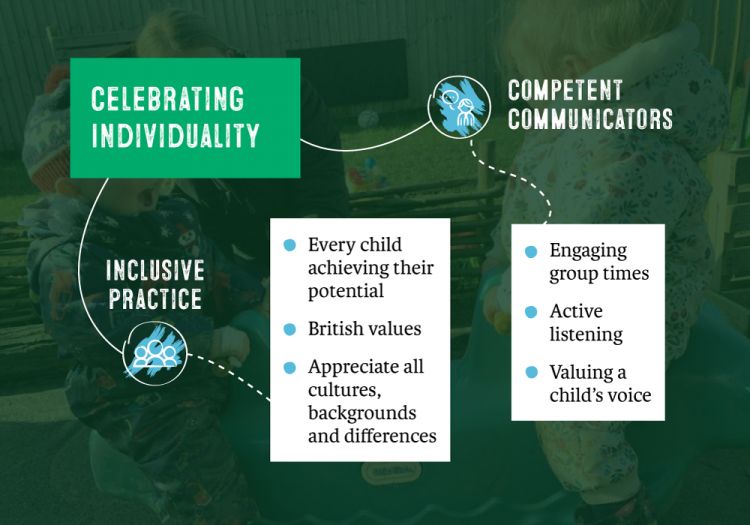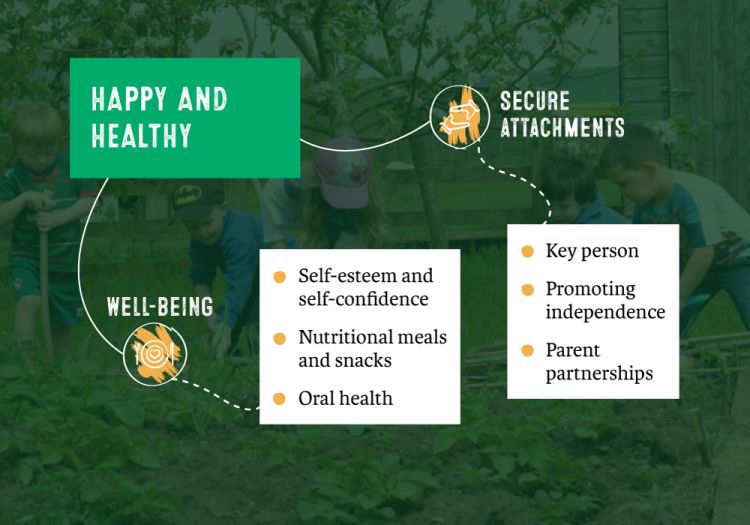Reformed EYFS Blog
A discussion on the implementation of the new Early years Foundation Stage (EYFS).
September’s blog is all about the new Early Years Foundation Stage (EYFS) which came in in September 2021. The biggest drivers behind the change is to improve outcomes at the age of 5, particularly in language and literacy and especially for disadvantaged children. It also aims to reduce workload so practitioners can spend more time interacting with, supporting and teaching children in their care, this is something I am especially passionate about.
A key change around the elements of learning and development has been the revision of the educational programmes, there is a statutory framework we have to follow, and two non-statutory programmes have been produced to support learning, at Great Wood Farm we have decided to follow Development Matters. The aim has been to then create a curriculum which defines what we would like children to learn and how they are going to learn it. The outcomes of this learning is then observed and tracked through the Characteristics of Effective Teaching and Learning and the seven Areas of Learning in the Development Matters framework. We are proud of what and how children learn at Great Wood Farm and felt we didn’t need to change our provision as we defined our curriculum. I worked closely with Totty (our Early Years Teacher), and Zoe (our Deputy Manager), to create a poster detailing our provision, this poster has been shared with all the staff and is now displayed in each room and in a large A1 poster format in our entrance, it is at the heart of all of our work here, creating a really clear and united approach to our ethos. The different sections of the poster are broken down into the images at the top of this blog.
The only part of the statutory EYFS I would like to touch upon is there is now a section on the importance of Oral Health in the early years. The statistics of children with tooth decay in the early years is scary. We have reflected on how we teach and support children, parents and staff in this area and will go into this more in another blog.
Moving on to share the Development Matters document. The seven areas of learning are the same, however Communication and Language has been purposefully moved to the first area listed. I believe it is because this area of learning is so important, without children being confident and able to communicate, all other areas of learning will struggle. There is so much emphasis on teaching children new vocabulary and the value of non-fiction books being used in teaching are listed throughout the areas of learning. A lovely example of this, I recently observed children playing with a tuft tray of wheat and wheat grinders for children to use to make flour, a member of staff had placed the Little Red Hen book and puppet in the tray, along with a book on harvest. The children didn’t pick up the Little Red Hen book and instead the harvest book was perused and brought wonderful discussions about the combine harvester, really highlighting the value of non-fiction books.
As part of developing the importance of teaching vocabulary we are considering low-frequency words which are right for each child, following their interests. During focus weeks, we use the information from parents about interests at home to plan low frequency vocabulary into the week’s teachable moments. Low frequency words are for example in regards to a unicorn could include hoof, mane, horn, fantasy
I feel one of the biggest changes is there are now no smaller age bands such as 22-26 months or 30-50 months, instead there are Birth to Three, Three and Four year olds and Children in Reception. The benefits of this it feels less like a tick box thinking about assessment and the challenges of standardisation between colleagues is less of a challenge. We are obviously still observing children all the time and making our assessments in the moment and in more detail during focus weeks, however I feel it lends itself to thinking more broadly of the whole child and their most natural next steps.
As part of assessment there are now Observational Checkpoints at different key development ages to ensure every child is meeting their potential and ensuring every child has the right support to get there, highlighting the importance of any early identification of additional support being needed. At the end of a focus week we have created a form to track all children in each room, where key persons make a judgement if they are on track or not on track, and if they aren’t on track we are sharing this with parents and working together to support any areas of learning.
The Development Matters have introduced seven key features of effective practice which I think are lovely and summarise key components of successful early years provision well. They are:
- The best for every child
- High-quality care
- The curriculum: what we want children to learn
- Pedagogy: helping children to learn
- Assessment: checking what children have learnt
- Self-regulation and executive function
- Partnership with parents
I feel our provision of key elements of planning in the moment and Forest School are a great basis for achieving all of the above. Our staff consider their Intent (focusing on children’s next steps) and join and extend children’s play, coming up with activities in the moment to follow on the learning. This means we are getting the learning and teaching right for children, every day, really tuning into them and following their interests. Babies and toddlers used to have focus weeks six times a year and have now moved to three times a year, in line with Kindergarten. We have made this decision to really extend the value of quality over quantity and release the time practitioners are needed out of ratio to complete paperwork.
I am excited about the direction early years is going, I feel we are in a revolutionary era where change is happening for the right reasons. As a country we are getting early years right, putting children at the heart of everything we do in settings, nothing is more important than valuing time with children, these early years are so crucial to build foundations for their lives.
Kate Robinson, Nursery Manager

